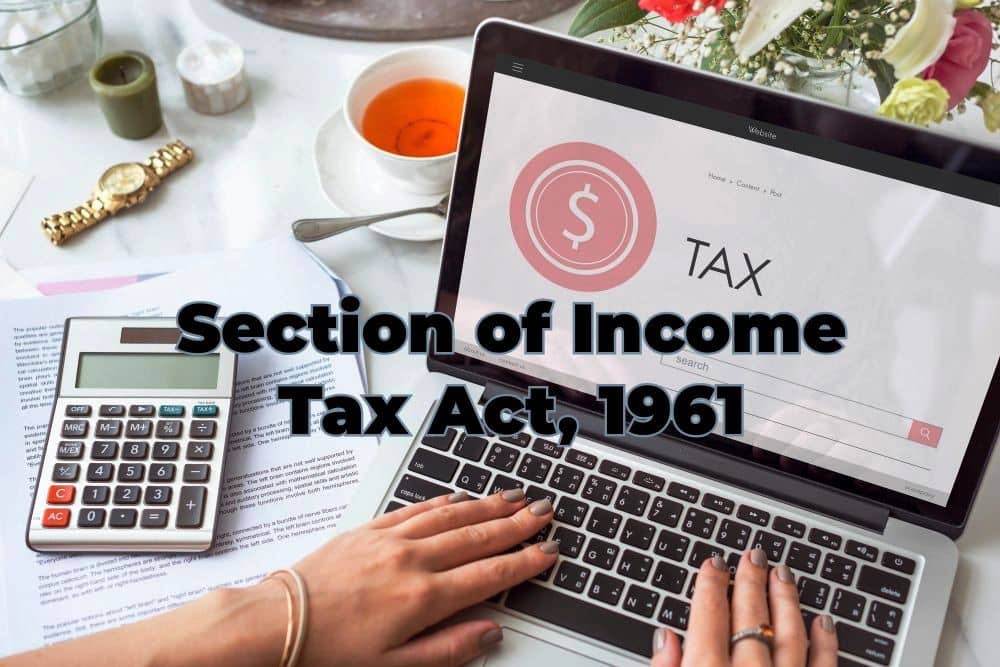Section 15 of Income Tax Act 1961-Salaries
The following income shall be chargeable to income-tax under the head “Salaries”—
(a) any salary due from an employer or a former employer to an assessee in the previous year, whether paid or not;
(b) any salary paid or allowed to him in the previous year by or on behalf of an employer or a former employer though not due or before it became due to him;
(c) any arrears of salary paid or allowed to him in the previous year by or on behalf of an employer or a former employer, if not charged to income-tax for any earlier previous year.
Explanation 1.—For the removal of doubts, it is hereby declared that where any salary paid in advance is included in the total income of any person for any previous year it shall not be included again in the total income of the person when the salary becomes due.
Explanation 2.—Any salary, bonus, commission or remuneration, by whatever name called, due to, or received by, a partner of a firm from the firm shall not be regarded as “salary” for the purposes of this section.
Related FAQ(s)
What is considered as salary income?
Section 17 of the Income-tax Act defines the term ‘salary’. However, not going into the technical definition, generally whatever is received by an employee from an employer in cash, kind or as a facility [perquisite] is considered as salary.
What are allowances?
Allowances are fixed periodic amounts, apart from salary, which are paid by an employer for the purpose of meeting some particular requirements of the employee. E.g., Tiffin allowance, transport allowance, uniform allowance, etc.
There are generally three types of allowances for the purpose of the Income-tax Act – taxable allowances, fully exempted allowances and partially exempted allowances.
Perquisites are benefits received by a person as a result of his/her official position and are over and above the salary or wages. These perquisites can be taxable or non-taxable depending upon their nature. Uniform allowance is exempt to the extent of expenditure incurred for official purposes u/s 10(14).
Is pension income taxed as salary income?
Yes. However, pension received from the United Nations Organisation is exempt.
Is family pension taxed as salary income?
No, it is taxable as income from other sources.
Are retirement benefits like PF and Gratuity taxable?
In the hands of a Government employee Gratuity and PF receipts on retirement are exempt from tax. In the hands of non-Government employee, gratuity is exempt subject to the limits prescribed in this regard and PF receipts are exempt from tax, if the same are received from a recognised PF after rendering continuous service of not less than 5 years.
No exemption shall be available for the interest income accrued during the previous year in the recognised and statutory provident fund to the extent it relates to the contribution made by the employees over Rs. 2,50,000 in the previous year.
However, if an employee is contributing to the fund but there is no contribution to such fund by the employer, then the interest income accrued during the previous year shall be taxable to the extent it relates to the contribution made by the employee to that fund in excess of Rs. 5,00,000 in a financial year.
The CBDT vide notification no 95/2021, dated 31-08-2021, has notified Rule 9D for calculation of taxable interest relating to contribution in a provident fund or recognised provided fund, exceeding above specified limit.
Are arrears of salary taxable?
Yes. However, the benefit of spread over of income to the years to which it relates to can be availed for lower incidence of tax. This is called as relief u/s 89 of the Income-tax Act.
Is leave encashment taxable as salary?
It is taxable if received while in service. Leave encashment received at the time of retirement is exempt in the hands of the Government employee. In the hands of non-Government employee leave encashment will be exempt subject to the limit prescribed in this behalf under the Income-tax Law.
